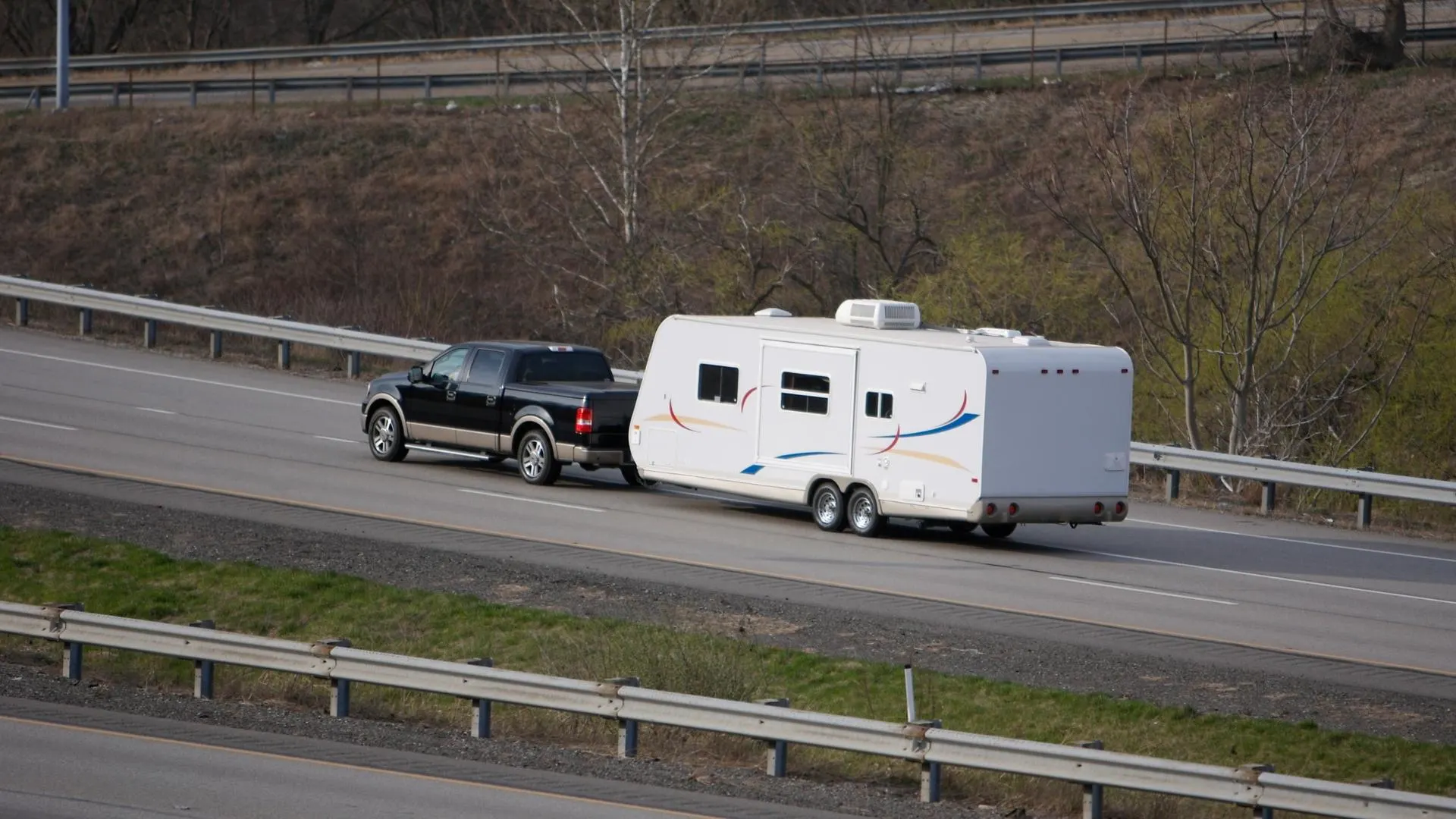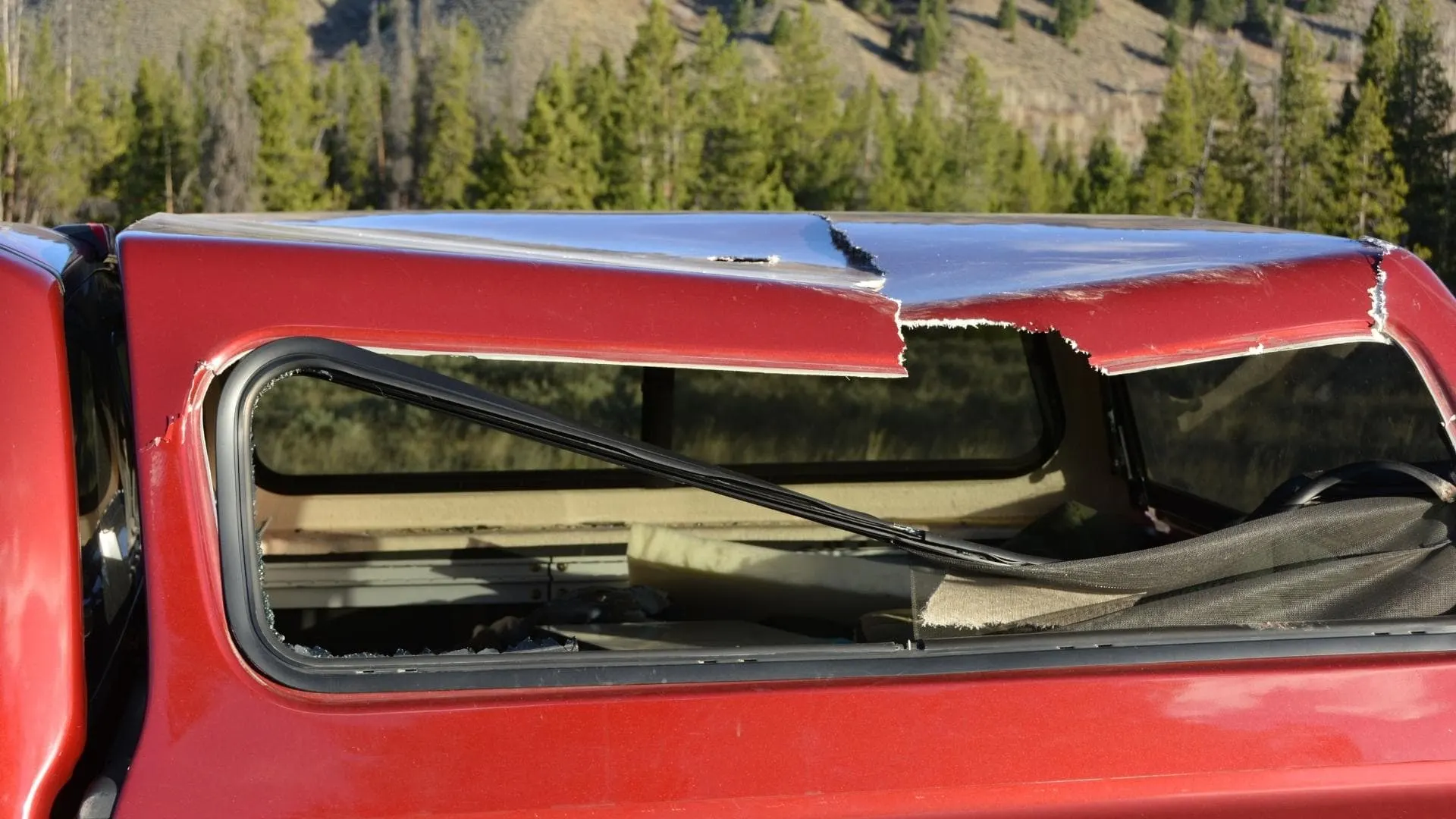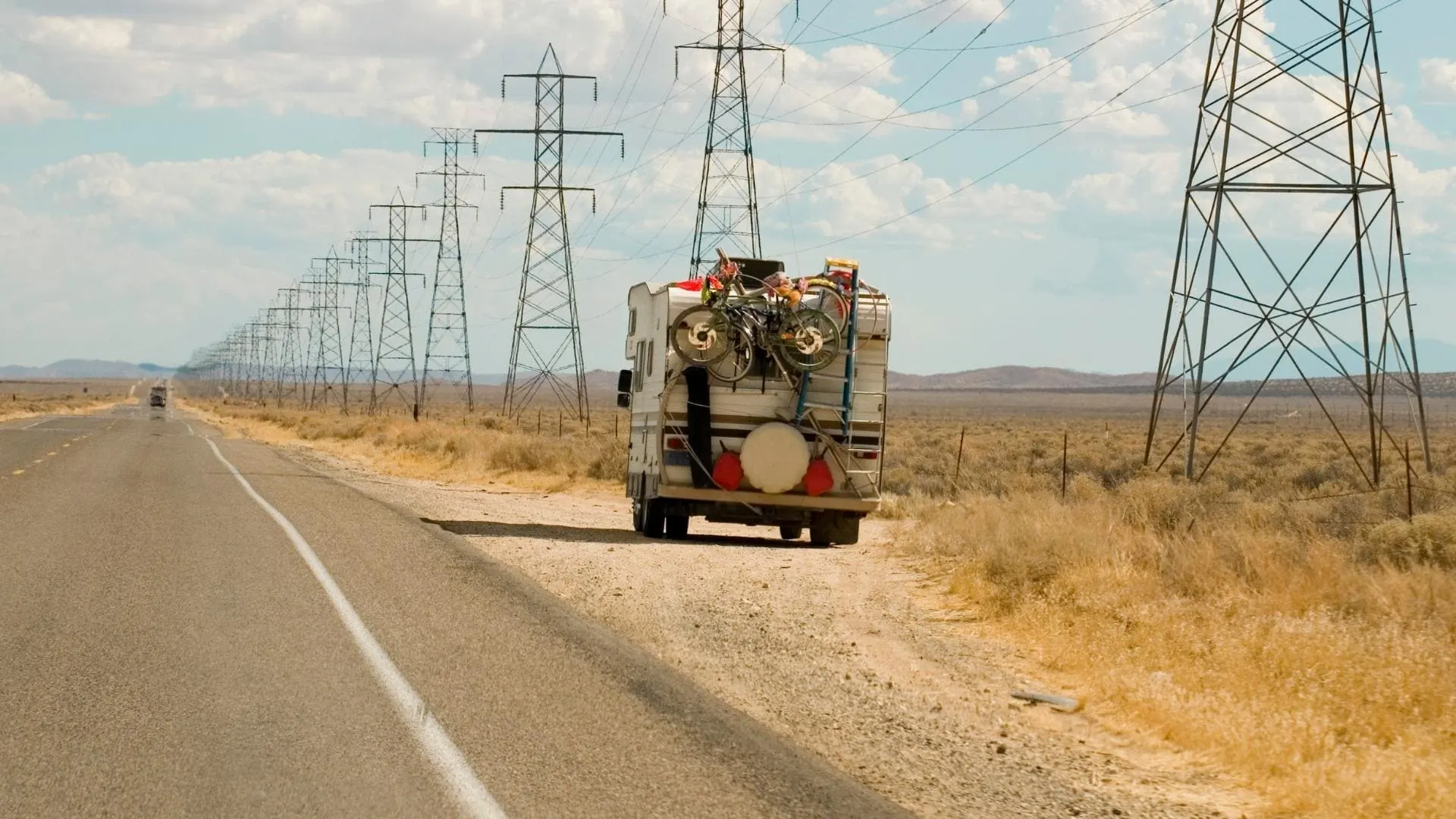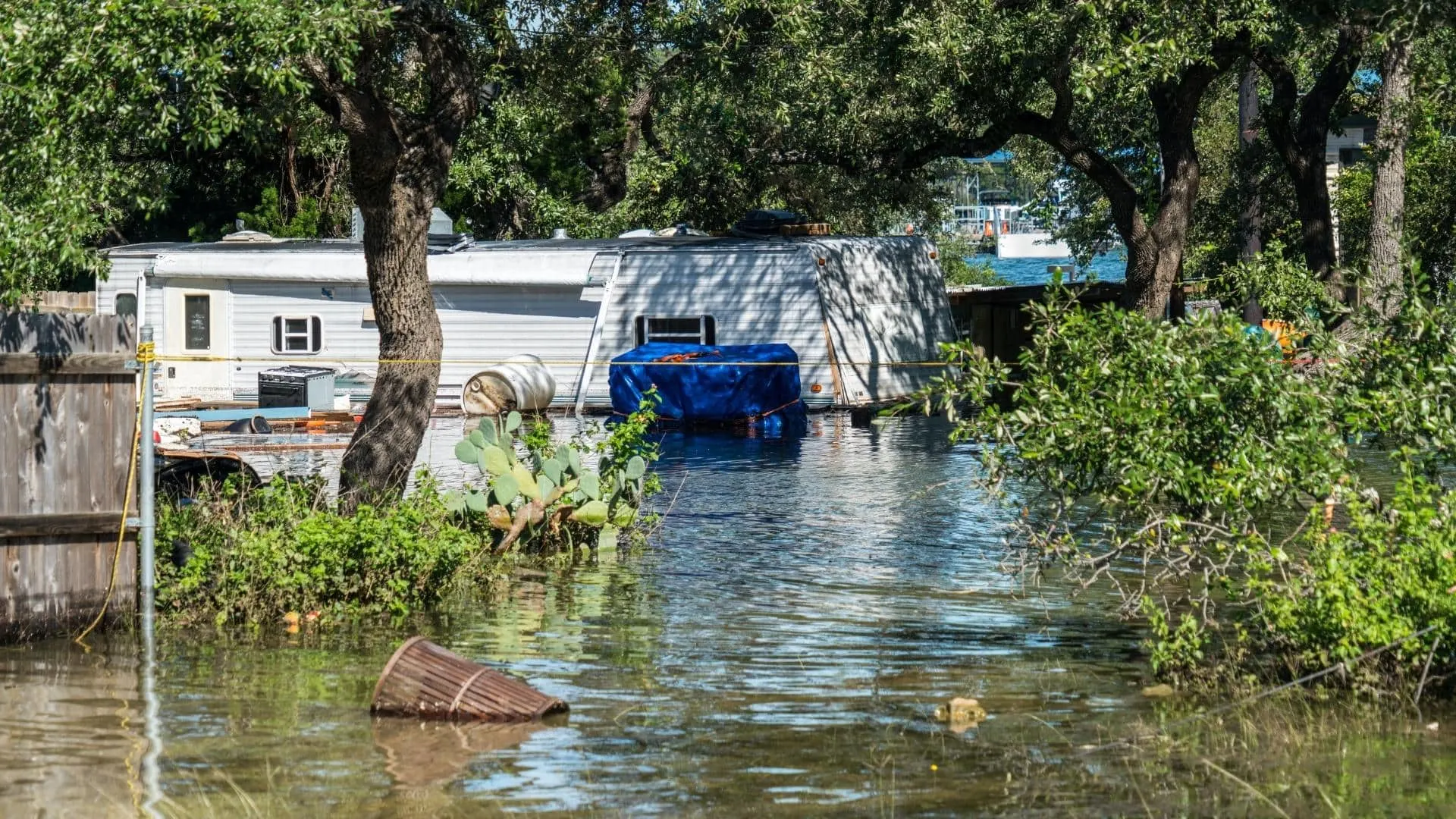We all have a pretty good understanding of how important RV insurance is, but what does your RV insurance cover exactly? And do you have all the insurance coverage you need and desire? Have you considered the fact that your RV is a home and a vehicle combined?
The day you make a claim is not the time to find out that you’re not adequately insured. There are several important questions to answer before you have the unfortunate occasion to make an insurance claim related to your RV. In today’s post, it’s our goal to answer those questions so that you’ll be prepared in advance, should you ever need to make a claim.
Let’s get started!
- 1) Do I Need to Have RV Insurance?
- 2) What Is RV Liability Insurance Coverage?
- 3) What Is RV Collision Insurance Coverage?
- 4) What Is RV Comprehensive Insurance Coverage?
- 5) What Is RV Full-Time Coverage?
- 6) Does RV Insurance Include Roadside Coverage?
- 7) Does RV Insurance Cover Rodent Damage?
- 8) Does RV Insurance Cover RVs In Storage?
- 9) Does RV Insurance Cover Emergency Expenses?
- 10) Does RV Insurance Cover Roof Leaks?
- 11) Final Word on RV Insurance
Do I Need to Have RV Insurance?
Most likely, you do! The laws around RV insurance (and any other type of insurance) vary from state to state, but there’s no question that, by law, you most likely need to have some type of RV insurance. It’s up to you to find out what coverage your state requires and to make sure you have that coverage as soon as you become an RV owner.
The coverage that is legally required for RVs in most states is liability insurance, so let’s start by taking a look at what liability coverage is.
What Is RV Liability Insurance Coverage?
Liability insurance coverage refers to insurance that will pay for the property damage and losses others sustain as the result of an accident that is your responsibility. Liability insurance protects you from legal liability should property damage or physical injuries occur as the result of an accident that is your fault.
Liability insurance covers damages incurred by others – not you, not your family, not damage to your own property.
Every state has its own requirement for minimum liability insurance, but almost every state requires some liability coverage for motorhomes. The same is not required for towables, but it IS required that you have liability coverage on the vehicle that tows your towable RV and that coverage applies to your towable RV, but only while you’re driving.

Though in some states you may not need liability insurance on your towable RV, you do need to have liability coverage on the truck you’re using to tow it. That coverage applies to your towable RV, but only while you’re driving.
While states do have minimum liability requirements, it’s important to keep in mind that some minimum liability requirements may not be sufficient to cover damages in an RV accident.
In some states, you’re required to have Uninsured or Underinsured Motorist Coverage (on motorhomes and tow vehicles). This is insurance that covers you if someone who is either uninsured or inadequately insured hits your RV. You may also opt for this insurance if your state doesn’t require it.
You can discuss both of these types of insurance coverage with your insurance agent.
What Is RV Collision Insurance Coverage?
Collision insurance covers damage to your RV if you collide with another vehicle or an object (guardrail, post, building, fence, etc.), regardless of whose fault the accident is.
It’s important to note that collision insurance doesn’t cover collisions with animals. For this, we look to comprehensive insurance.
What Is RV Comprehensive Insurance Coverage?
Comprehensive insurance covers any damage to your RV that is not covered by collision insurance. Examples would include hitting a deer or other animal, fire, vandalism, damage from falling objects, theft, hail, flood (in some cases), and windows that are broken in a manner other than by collision.
A great question to ask regarding your comprehensive coverage (should you elect to buy such coverage) is whether it will cover your RV for water damage such as that which would occur if pipes burst. Water damage related to any of the plumbing inside your rig – shower, faucets, pipes, water heater, toilet – may or may not be covered under the comprehensive piece of your policy.

If a tree were to fall on your RV, for example, the comprehensive piece of your RV insurance policy is what would cover that damage.
Comprehensive coverage can differ from policy to policy, so if you elect to buy comprehensive coverage, it’s very important to speak with your agent so that you understand exactly what is covered, and what isn’t.
Know, also, that if you are financing your RV, your lender may require particular types of insurance coverage, including collision and comprehensive coverage.
What Is RV Full-Time Coverage?
If you use your RV as your primary residence, you may be required (by your insurance company) to have “full-time coverage”. This type of policy is similar to a homeowners policy in terms of liability. In fact, full-time coverage replaces the liability coverage noted above, (if your RV is your primary residence).
Full-time coverage will cover an accident that you have while driving your RV and also accidents that may occur inside the RV or when the RV is stationary, such as at campsites.
It’s very important to disclose to your insurance agent that you intend to use your RV as your permanent residence and that you also intend to drive it. You need to be clear and honest about your intentions because your insurance company can deny coverage if your intentions were not disclosed to them at the time you purchased your insurance. (If you have full-time insurance, your intentions are crystal clear.)
With all of that said, not many insurance companies offer “full-time coverage”, though some offer a “full-time package” which may include personal liability coverage (bodily injury & property damage) from an accident that occurred while you were driving, or on the property where the RV was parked. Full-time packages may also include medical payments to others who are injured, contents of a storage shed where you store items while you travel/live in your RV, and more.
For any full-time coverage you may be considering, it’s very important that you talk with your agent, understand the fine print, and make sure you’re getting the coverage you want.
Does RV Insurance Include Roadside Coverage?
Some RV insurance policies offer roadside coverage if you elect to pay for it. Very often it’s offered at a very reasonable cost, frequently less than an independent roadside assistance plan may cost.
If you elect to add roadside service coverage to your RV insurance plan, be absolutely sure that you understand the coverage. Will they cover towing, for example, and how far will they pay to tow your RV? Will you be covered for tires or if you run out of gas? Will your policy cover a hotel if your RV is out of commission for a period of time, and for how long will you be covered?

Roadside coverage is usually a separate addition to your RV coverage. You can ask your RV insurance agent about this option, or you can choose an independent roadside assistance plan.
Understand clearly what you will receive if you require roadside assistance – BEFORE you decide to buy coverage through your insurance company, and not to buy another roadside assistance plan.
Does RV Insurance Cover Rodent Damage?
This is a good question to ask your insurance agent when you’re purchasing your policy. Some comprehensive insurance does offer this type of compensation, but not all do. But the damage that rodents can do, particularly to wiring, can be devastating. They can also damage the walls of the RV and create a mess that requires professional cleanup.
There are only two ways to know whether your comprehensive coverage will pay for damage to your RV caused by rodents (or other critters). The first way is to wait until you encounter such damage, file a claim, and find out whether you’re covered or not. The second way is to contact your insurance agent to ask specifically if you’re covered for such damage in the event that it happens. We highly recommend the latter!
Does RV Insurance Cover RVs In Storage?
You can get coverage for your RV when it’s in storage – but again, you need to specifically ask about this coverage.
For those of you who only use your RV during part of the year and store it during the time when it’s not being used, you may wish to inquire about a “storage only” policy. What this does is keep you from having to pay for parts of your policy that you won’t be using while your rig is in storage.
So, for example, you can have full coverage on your RV during the six months you spend using the rig, but then move to a “storage only” policy for the six months it’s in storage.
Not all companies offer storage-only coverage, though, so you may need to shop around a bit if that’s what you’re interested in doing.
Does RV Insurance Cover Emergency Expenses?
Some RV insurance policies do cover emergency expenses. Coverage (and cost) varies, so once again, it pays to have this conversation with your agent.
You’ll want to ask exactly what expenses are covered, for how long, and what types of emergency events bring that coverage into play.

It’s critical that you confirm your coverage with your insurance agent so that you’ll know what’s covered – and what isn’t!
Does RV Insurance Cover Roof Leaks?
This one can be tricky, and it’s another good question for your insurance agent. However, the very first thing we want to make clear is that most insurance policies will not cover maintenance-related damage to RV roofs. This is why we say in post after post – tend to the maintenance of your RV’s roof.
RV leaks can cause serious damage, and it’s unlikely to be covered by your insurance policy if the damage began with the RV owner’s inattention to roof maintenance.
Some types of damage to an RV roof, if the damage occurred while the rig was parked at your home, may be covered by your home insurance.
With regard to your RV insurance coverage, the comprehensive piece of your policy may well cover your RV’s roof if it’s damaged in an accident, by a storm or a fallen tree branch, hail, or even water damage.
But never just assume that your RV’s roof will be covered in the event of an unfortunate incident – ask ahead of time. Ask when you’re policy shopping. And be sure you’re getting the coverage you want.
Final Word on RV Insurance
Insurance is something we often pay a lot of money for, “just in case” something happens. That can be irritating … until the day comes when you file a large claim and your insurance policy covers all of it. Wondering how much RV insurance costs? Check out our post on the topic to learn more: How Much Does Motorhome Insurance Cost?
Geek Out With Us Every Week
Join our newsletter to learn about all things RV-related. Every week we offer free tips, tricks, product reviews, and more to our online community of RVers. So, whether this is your first time on the road or you’re a seasoned expert, we’d love for you to geek out with us!


Smitty
Saturday 15th of January 2022
As usual, helpful and informative!!! Another tip for those seeing insurance on an RV, is to ask about Stated Value Coverage. Where you determine the value of the RV, and the cost of insurance to get that amount in case of a total lost. We all want to think our RV's are certainly worth more the wholesale!!!! Added modifications, upgrades components and interiors, solar and expensive batteries, etc. So my wife and I insure with a Stated Value Coverage, and again we do pay more fo this coverage, that would allow us to purchase a similar coach again, and also the improvements/modifications needed to bring up to where out current coach is.
TheRVgeeks
Saturday 15th of January 2022
Great point (and smart move), Smitty! Thanks for adding that info!
Jane
Saturday 15th of January 2022
We've had our 33' MH for almost 3 years now. We keep it on our property, at 11 months old a tree branch fell on the roof, putting multiple holes in the fiberglass roof. One hole was on the radius edge. Being a brand new coach, for that reason Progressive replace the entire roof, 19K! Needless to say we had a few trees cut down after that.
TheRVgeeks
Saturday 15th of January 2022
Oh wow, Jane! That's quite a story (and, we're sure, it must've been quite stressful when you found that tree branch and holes)! So glad that your insurance covered getting it all put back right. Safe (tree-branch-free) travels!